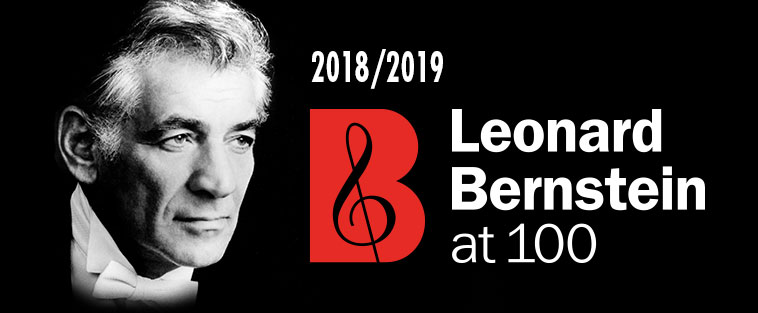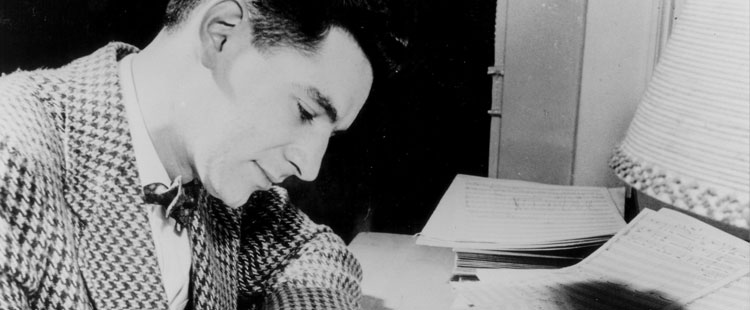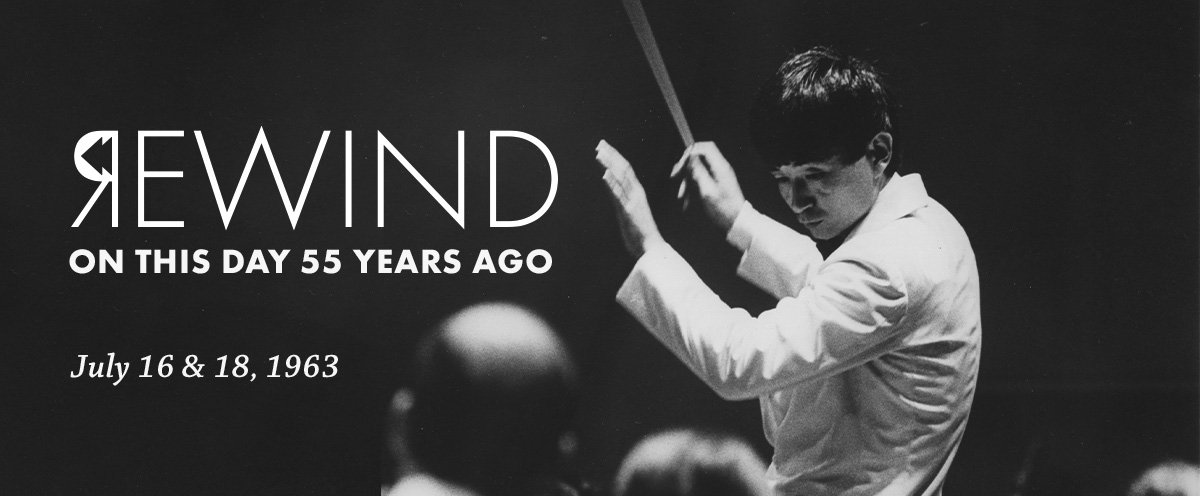No doubt Bernstein would have beamed upon the accomplishments of the 16-year-old cello virtuoso Ifetayo Ali-Landing, who will perform his Meditation No. 3 from Three Meditations from ‘Mass’ at Ravinia this summer with the Chicago Symphony Orchestra on July 27—her debut with our nation’s top ensemble. At an age when most people her age are concerned with acne or just making it through gym class alive, Ms. Ali-Landing has already amassed a slew of important awards and concert appearances.
Read MoreLeonard Bernstein
How Bernstein shook up the status quo with ‘On the Waterfront’
“On the Waterfront” received 12 Academy Award nominations, including one for its score; it won eight Oscars, including best picture, director, screenplay, cinematography, and of course, actor. Bernstein lost to Hollywood veteran Dimitri Tiomkin for “The High and the Mighty” — a plane-in-peril drama with a popular soundtrack (John Wayne, as the movie’s hero, whistles the title theme throughout the film). With its tortured history, however, “On the Waterfront” was a surprising Oscar winner, and remains a polarizing film in some quarters to this day.
Read MoreAll the World’s His Stage: Regardless of Genre, Bernstein Put On a Show
America’s most important music figure was many things to many people: conductor, composer, pianist, educator, author, television personality, activist, international bon vivant. But if you asked Leonard Bernstein how he self-identified, he thought of himself as a composer.
Read MoreRewind: July 16 and 18, 1963
If anyone had a knack for defying convention with an astounding rate of success, it was Leonard Bernstein. When he became music director of the New York Philharmonic in 1958—15 years after his surprise debut with the same ensemble, then only months into his tenure as its assistant conductor—the tradition had been for those assistants to remain in the position for only one year. But then Seiji Ozawa caught his eye. The winner of the 1960 Koussevitsky Prize at Tanglewood, where Bernstein had been a close advisor for the conducting and orchestral programs since 1951, and subsequently the winner of a scholarship to study with the quintessential maestro Herbert von Karajan, Ozawa was quickly sought by Bernstein to become one of the NY Phil assistants in 1961. One of three conductors in the role, Ozawa was nonetheless a clear favorite, being chosen to lead a performance during the orchestra’s 1961 tour and retaining a close association with Bernstein, if unofficially, through the maestro’s 1965 sabbatical.
The program insert for Seiji Ozawa’s hastily arranged Ravinia and Chicago Symphony Orchestra debut
The especial attention from “America’s music teacher” of course drew the attention of other ensembles. Ozawa made debuts with the orchestras of San Francisco, Minneapolis, Detroit, and Montreal between 1962 and 1963. During the latter summer, he received a call similar to that which Bernstein received in 1943: the conductor for the Chicago Symphony Orchestra’s concerts at Ravinia has suddenly taken ill at the 11th hour, and could Ozawa come conduct his concerts. Even with a program inherited from Georges Prêtre, comprising Beethoven’s Third Leonore Overture, Grieg’s Piano Concerto, and Dvořák’s “New World” Symphony, Ozawa appointed himself well in his Ravinia and CSO debuts on July 16, with the Chicago Daily News readily recognizing the influence of “Leaping Lenny”: “While conducting, he [Ozawa] slides easily from waltz to rhumba to twist to a modified version of the Limbo … however, he remains in control of the situation. Ozawa can make an orchestra do almost anything he wants … it would be hard to name a conductor of his age more gifted, and it will be fascinating to see what becomes of him.”
Ozawa leads a rehearsal with the Chicago Symphony Orchestra during his first season as Ravinia’s Music Director, 1964
The second night, July 18, was opened up to Ozawa, which caused the Daily News to assert, “It is necessary to revise the glowing estimation that appeared in this space … because by evening’s end it was becoming hard to think of many more gifted conductors of any age. This time, Ozawa faced and passed the only worthwhile test of a conductor: he brought a new work [Takemitsu’s Requiem for Strings], rehearsed the orchestra in it thoroughly, and then secured a performance of polish and poetic imagination. Very little time should elapse before he shows up again at the head of the Chicago Symphony.” In very little time indeed—just a few days more than a month later—Ozawa was named the first music director of Ravinia, where he would bring the flair and passion for the music of his time (as well as music written specifically for his time) that he shared so similarly with his mentor, Bernstein, through the end of the decade. ■
Ravinia To Host Two-Season Celebration of Bernstein Centennial With Music, Mementos, and Marin Alsop

To borrow the name of one of his popular tunes: Something’s coming! In 2018 Ravinia will launch a two-season centennial tribute to one of the all-time legends of American music, conductor/composer Leonard Bernstein, and in 2019 will open the Ravinia Music Box experience center with an exhibit of important mementos from Bernstein’s life and storied career, including his personal piano.
The Management Regrets... but is sometimes witness to history in the making
It happens all the time. A famous, beloved artist falls ill (or, as is sometimes the unpleasant case, gets what may be regarded as a better offer). It even happens at Ravinia. A famous, beloved artist cancels, and management scrambles for an appropriate replacement.
Some cases become memorable, star-making events. Other cases are quickly, even mercifully, forgotten.







